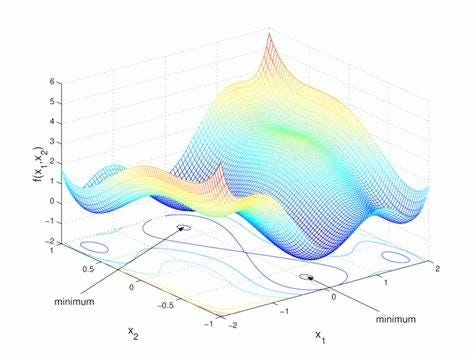As Ronald Reagan’s director of personnel, Scott Faulkner, once said, “personnel is policy.” This sentiment has been echoed by many others over the years: I often hear it expressed as "People are Policy". Indeed they are.
The Executive Branch of our government makes a lot of decisions. Fifteen executive departments (The Cabinet) employ over 4 million people and touch every aspect of the lives of Americans AND millions of other non-Americans around the world. In addition, a number of other councils advise the President on a variety of issues.
A week after the Presidential Election of 2024, names are starting to roll in, the new administration's picks for the top decision-making and advice-giving positions in the Executive Branch. I wish I saw more "STEM people"!
AS OF RIGHT NOW, DONALD J. TRUMP IS THE ONLY "STEM HIRE"!
Recently announced picks, along with the individual's educational and professional background.
POTUS - - Donald Trump
* Univ. of PA, Wharton: BS Economics *
- real estate developer, entrepreneur
VPOTUS - - JD Vance
- Ohio State: BA Political Science, Philosophy; Yale: JD Law
- lawyer, venture capitalist
Sec. of State - - Marco Rubio
- Univ. of Florida: BA Political Science; Univ. of Miami: JD Law
- lawyer, politician
Sec. of Environmental Protection Agency - - Lee Zeldin
- SUNY Albany: BA Political Science; Albany Law: JD Law
- lawyer, politician
Sec. of Homeland Security - - Kristi Noem
- Univ. of SD: BA Political Science
- politician
Chief of Staff - - Susie Wiles
- Univ. of MD, College Park: BA English
- political advisor
Deputy Chief of Staff for Policy - - Stephen Miller
- Duke: BA Political Science
- political pundit / advisor
National Security Adviser - - Mike Waltz
- VA Military Institute: BA International Studies
- soldier, politician
U.S. Ambassador to the United Nations - - Elise Stefanik
- Harvard: BA Government
- politician
Other names floating around as possible picks:
- Education: Vivek Ramaswamy, Betsy DeVos
- CIA: John Ratcliffe, Mike Waltz, Kash Patel
- Energy: Doug Burgum
- Defense: Mike Rogers
- Justice: Mike Lee, Mark Paoletta, John Ratcliffe, Aileen Cannon, Kash Patel
- Treasury: Bill Hagerty, Howard Lutnick, Robert Lighthizer, Scott Bessent, John Paulson
While we pay a lot of lip service to the importance of STEM to our nation, we seem to let non-STEM people run it!
If you scan my "possibles" list, you'll see more of the same, so I expect the final roster to be politicians and lawyers, for the most part. Why does this matter?
STEM TRAINING AND STEM EXPERIENCE RESULTS IN BETTER DECISION MAKING, AND WE NEED IT
In writing this post, I was approached by my highschool freshman son, "The Younger". He was excited to show me an algebra problem he'd just tackled. It was a baking problem: How many loaves could you bake of two bread varieties where each variety uses a different ratio of the given ingredients? Immediately, I gushed, "Linear programming!"
He showed me in his notes how he graphed the inequalities to determine the optimal quantity of each bread - - the best combination to most-efficiently allocate the resources he was given. A simple problem right? One that we might encounter in our everyday lives. [Answer to Question 30, at post's end.]
Below is a graph of slightly more complex problem, for 1st- and 2nd-year math students at Cambridge.
There really is no limit to how complex these problems can become, especially with more and more-complex variables. Here, a "humpback" problem. Even more pastry types, ingredients, baking temperatures … you get where this is going. What is the best solution?
The point I am making is this: While we're born with some innate ability to make trade-offs, the point of these illustrations is that decision-making SCIENCE can be taught, and, ideally, we start learning this science in our youth.
In these examples above, I am highlighting the practice of "linear programming" or "linear optimization", that particular technique of optimally allocating resources. How do you do something in the best possible way? How do you take scarce resources and use them to meet your objective, such as cheaper, better, or faster?
Can you see how this science, this mindset, might be particularly useful to leaders, particularly those in military, government, and industry?
Am I wishing too much, to wish that I saw more of this in senior leadership? While the study of politics and the law are certainly important, these are the studies of how resources are allocated by contract, by negotiation, and by political power - - not the study of efficient resource allocation!
WHILE SOME HAVE VISIONS OF ORGANIZING SOCIETY THROUGH FOCUS GROUPS, RALLIES, AND BALLOT INITIATIVES, OTHERS HAVE VISIONS OF DATA SETS, DECISION TREES, AND GANNT CHARTS
Elon Musk is an interesting person in this regard. He builds spaceships. I have written about him here and here. It's rumored he might head a "DOGE", a Department of Government Efficiency. Remember, this is a guy who is thinking about how to build, staff, and run a Martian Colony.
ECONOMICS IS A SCIENCE SPECIFICALLY DEDICATED TO THE RESOURCE ALLOCATION PROBLEM
We're all making "economic" decisions every waking moment, conscious of it or not. I think it is easy to lose sight of this; much like gravity, we live with it but often give little thought to its workings. It's in the background, as servant to business and its specialties, like marketing, production, and finance.
"Economics is a social science that studies how people allocate scarce resources for production, distribution, and consumption."
I've a confession to make, one thing I have in common with Trump and Musk: I too got a Bachelor of Science in Economics, from the Wharton School at Penn. [I found my way there, from engineering school, were I began as a Chemical Engineering student.] It is fantastic training. Musk completed another STEM degree while at Penn, a BA in Physics, and it shows in his passions.
Of course, we think of economics informing decisions on Wall Street, on Main Street, and in the corporate world, but do we think of it informing decisions in the US military? Not a chance!
WAR PRESENTS THE ULTIMATE RESOURCE ALLOCATION PROBLEM - - RUSSIA CHOSE AN ECONOMIST AS MINISTER OF DEFENSE
On May 12, 2024, Russian President Putin appointed Andrei Belousov Minister of Defense, replacing Sergei Shoigu, a military officer. With a background in mathematics, physics, and cybernetics, Belousov has served his government in economic development and trade roles. It is said that military spending is currently about one-third of the Russian economy. Belousov is tasked with managing Russia's "war economy", making it more efficient and innovative.
Q: Guess who also chose an economist, STEM geek for Secretary of Defense?
A: John F. Kennedy.
IF TRUMP IS WISE, HE'LL DRAFT SOME SMART, ANALYTIC DECISION MAKERS
His hand will be forced in this matter, sooner or later. In a previous post, "Peter, Parkinson, Praying. For a Benevolent Dictator", I discussed executive leadership and the example of Singapore's Lee Kuan Yew.
Government spending is astronomically high, at a share of the US economy greater than WW2 levels! It is simply unsustainable, and we pile on public debt to get there. Currently, $33 trillion. It's further argued in my post, that government grows - - larger and less competent - - year-by-year.
I'm praying, and we should all pray, those good decision makers arrive sooner and not later. As I detail in a previous post, "Ambush Beats the Tar Pit", there are enormous benefits to "Size Up Your Situation, Early".
When you delay, you can find your options constrained, even to the point that every option you have is bad.
FOR TRUMP - - MAYBE THROUGH MUSK - - THE PRECEDENT IS THERE, MAKE A NEW PACK OF "WHIZ KIDS"
In the 1960s, Robert McNamara was the longest-serving Secretary of Defense, under Presidents Kennedy and Johnson. A UC Berkeley Economics graduate, he minored in mathematics and philosophy. Later, he attended Harvard Business School.
"I had spent fifteen years as a manager [at Ford] identifying problems and forcing organizations - - often against their will - - to think deeply and realistically about alternative courses of action and their consequences". - McNamara, in his memoirs
Famously, when discussing with Kennedy the prospect of working together, he told Kennedy he knew nothing about government; Kennedy quipped, "We can learn our jobs together. I don't know how to be president either".
McNamara, as he had done at Ford, created a group of "Whiz Kids" to reform the Department of Defense.
The purpose was to shape a modern defense strategy in the Nuclear Age, by bringing in economic analysis, operations research, game theory, computing, as well as implementing modern management systems to coordinate the huge dimension of operations of the DoD, with methods such as the Planning, Programming, and Budgeting System (PPBS). - Wikipedia, "Whiz Kids"
The group numbered more than twenty, drawn from numerous - - mostly STEM - - fields, including physicists, economists, engineers, strategists, and analysts.
The challenges we face are enormous, in every Cabinet Department of the US Government.
Mr. President, bring STEM back into the White House!
[Answer, Question 30: 6 pumpkin; 8 Swedish]









